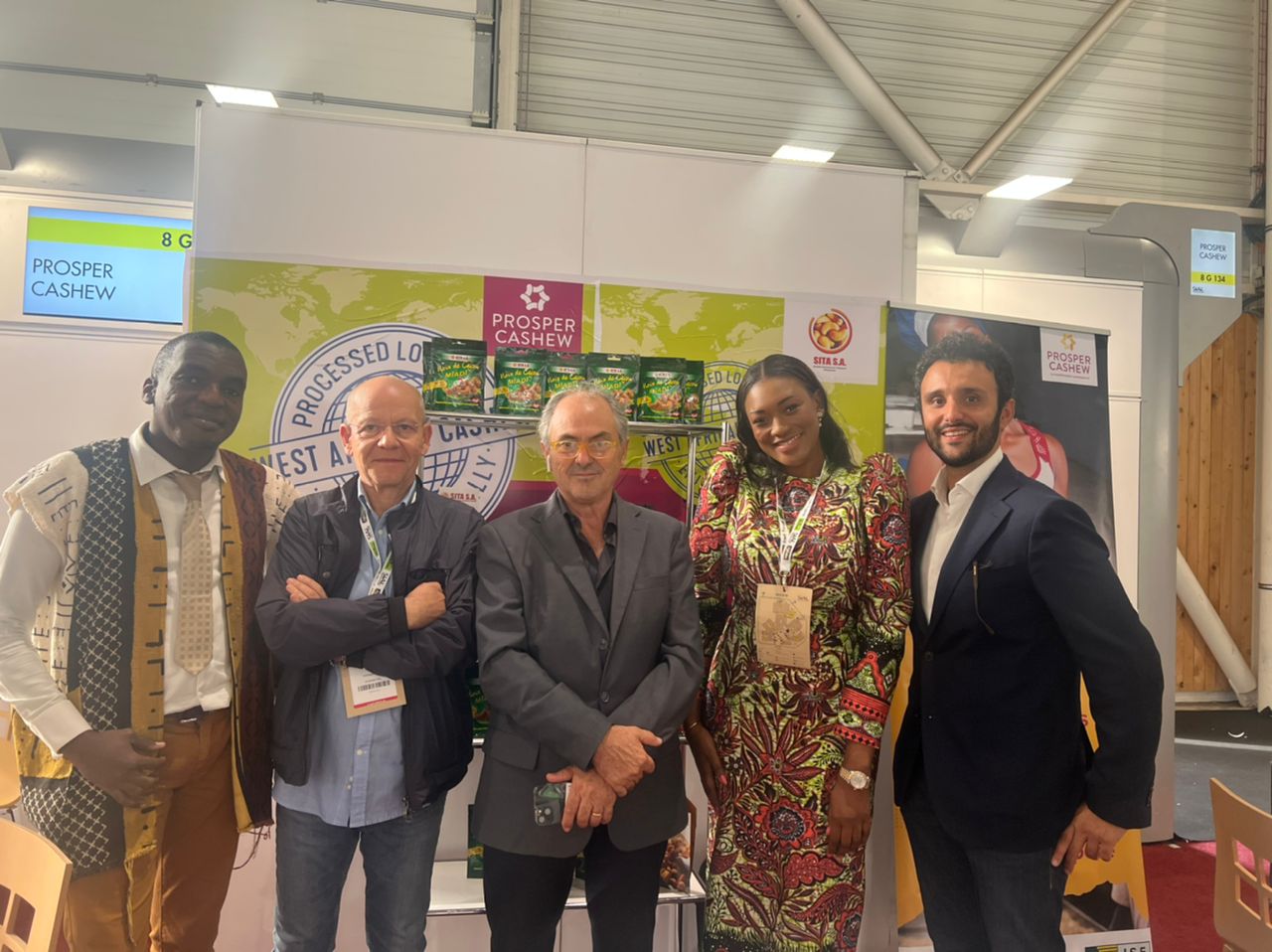A discussion with SITA SA’s Sarata Touré

Could you please introduce yourself to our readers?
My name is Saraté Touré and I am the Deputy CEO of SITA SA. I have a degree in Finance and Entrepreneurship from the University of Oregon in the United States of America. I have over seven years of experience working in the cashew industry and my objective has always been to create new value for the organization and change the dynamics of cashew processing in Côte d’Ivoire.
Why did you choose to have a career in the cashew industry and how did start?
Since my childhood, I have always been guided by my mother who is a pioneer in the cashew sector. She is the first woman industrialist in Côte d’Ivoire and I was able to learn a lot from her due to her expertise and experience, passion and technical know-how. Our common goal is to raise SITA SA to its highest potential and thus bring development to our region, specifically to the city of Odienné, which is where our factory is located.
What is your vision and ambition for the cashew industry?
Our vision aligns with the Côte d’Ivoire government’s vision of processing 50% of local cashew produced by 2025. As a company, we want to be more ambitious by aiming at a transformation of our entire production and a mastery of the entire value chain, while providing quality products to consumers at affordable costs. Our ambition today is to make SITA a world reference in the production of cashews and to be the engine of development in the Odienne region.
What challenges have you faced as a woman in the cashew industry and how do you deal with them on a daily basis?
As a woman, we face a lot of challenges, especially in the management of our human resources and the monitoring of our activities. Prejudices are hard to overcome and many people do not necessarily expect us to be at the level we have reached. So we have to show great leadership on a daily basis and work hard to change the mindset. We have a large company, with employees in Abidjan and Odienne. It is therefore necessary to monitor and track activities on a daily basis and this requires a great deal of availability and sacrifice.
What do you think of the current contribution of women in the cashew industry and how could the sector benefit from the increased participation of women in the long run?
Women, as far as I am concerned, have always been the driving force of this sector. You only have to visit the cashew nut production areas to realize the remarkable work that these women do. They are not only visible in the production value chain but also in the processing factories. Our company, SITA SA, employs a significant number of women. We are proud to contribute, in our own way, to their financial empowerment. We need more women in the cashew industry as they tend to have a high sense of responsibility. This is what is needed to change the game and make our industry more competitive.
What is a typical workday like for you?
My typical workday consists of reviewing the daily activities of the teams and taking corrective action on specific points for continuous improvement. In addition to this, we have to follow up on customer orders and continue showcasing our work. We are always on the alert and take action as the need arises.
Have you been positively impacted by a woman in the cashew industry? If so, can you share that experience?
I was very lucky and had a great opportunity to have a mother who is the pioneer of cashew in Côte d’Ivoire. Naturally, she is my role model and inspired me to begin a career in this field. I work alongside her and continue to learn from her. She is an exceptional woman and a great entrepreneur. So I am in the right school.
How has participation in the Prosper Cashew project helped you as a manager and a woman in the cashew industry?
Prosper Cashew is a very good initiative which has provided the platform to generate more visibility for our brand and promote our products. We have benefited tremendously from this collaboration and we are still committed to continuing this fruitful adventure with Prosper Cashew.
Prejudices are hard to overcome and many people do not necessarily expect us to be at the level we have reached.

